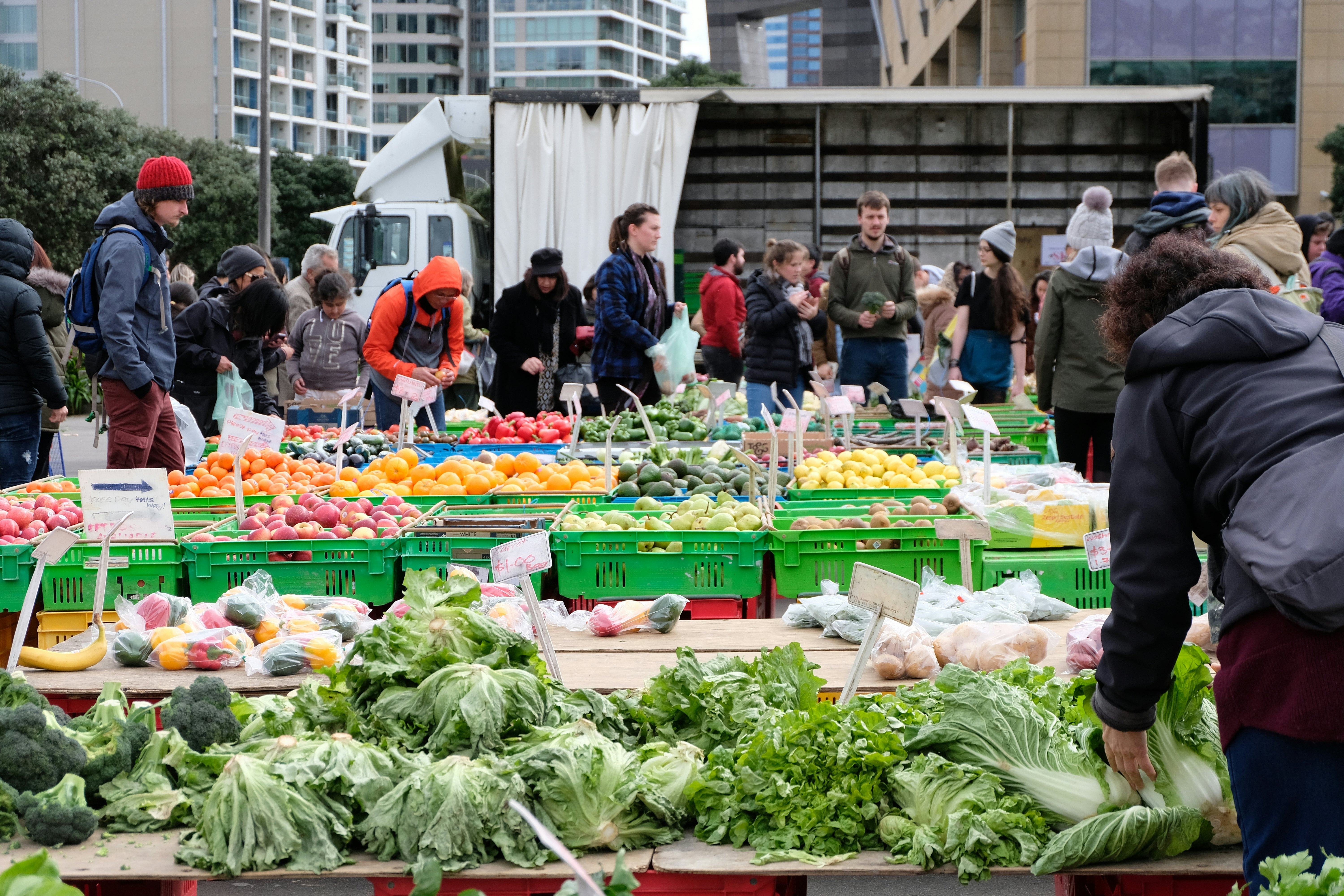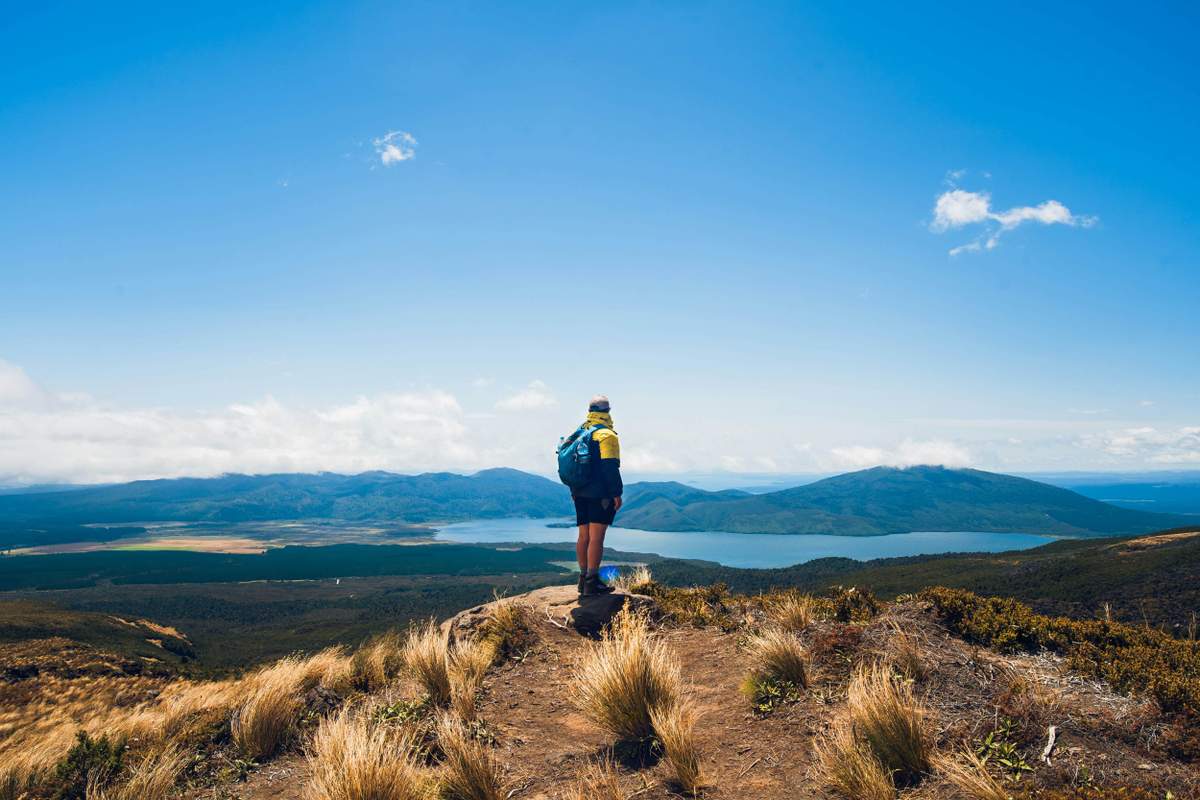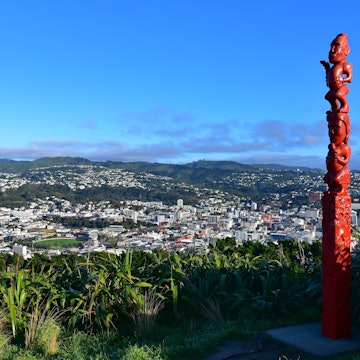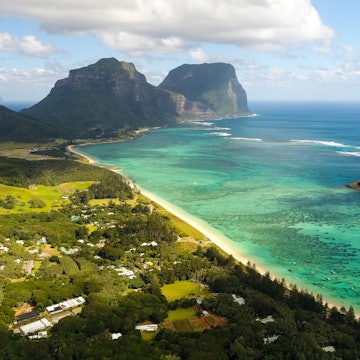

South Island. Kaitlyn McLachlan/500px/Getty Images
You’ve spent all that money on plane tickets getting to the bottom of the southern hemisphere. Now you want to make the rest of your travel fund stretch as far as possible. The good news is that affordable travel in New Zealand is possible – if you plan carefully.
Depending on your home currency and the exchange rate, travel in Aotearoa (New Zealand’s Māori language name) can be delightfully affordable or a bit of a stretch. Many visitors are shocked to discover how expensive food and goods are in New Zealand – the consequence of everything from gasoline to staples like rice having to travel a long way to get there. Meals out can seem expensive, but keep in mind that listed prices always include tax. You also don’t need to tip; New Zealand has one of the highest hourly minimum wages in the world.
Despite the high cost of living, you can still make your New Zealand dollars (NZ$) stretch. Here’s how to travel through NZ on a budget.

Daily costs
Average daily costs run NZ$150–250, including three meals a day, cheaper accommodations, and modest activities and transportation.
Night in an eight-bunk hostel dorm room: NZ$30–60
Night in a private hostel room for two: NZ$100–150
Night camping at a holiday park: NZ$50
Night at a cabin in a holiday park: NZ$145
Night in a self-catering apartment: NZ$100–150
Public transportation ticket: NZ$2-$5
Flat white coffee: NZ$5.50
Sandwich: NZ$6
Mince and cheese pie: NZ$5
Dinner for two: NZ$60
Pint of beer at a pub: NZ$10

1. Instead of renting a car, relocate one
Although your itinerary will need to be flexible, one-way relocations of rental cars and campervans via websites such as Transfercar can save you money on travel, fuel and accommodations. Some will pay your ferry ticket if you have to cross between the North and South Islands.
2. Or catch the bus instead
The InterCity bus network is the cheapest way to get around New Zealand. The buses are reasonably comfortable, with big windows, charging ports and regular stops. Tickets can be very cheap if you book ahead – Auckland to Wellington from NZ$60, for example.
A FlexiPass buys you a certain number of hours on the bus, so you can hop on and hop off, planning your own itinerary. InterCity also offers backpacker discounts if you have a membership at YHA, ISIC, Hostelling International or a similar organization.

3. Embrace van life
Although it can seem like a big up-front cost, renting a campervan can save money in the long run. With countless free and legal campsites across the country, you won’t have to shell out for accommodations and can cook your own food. Comparison sites, like Motorhome Republic, aggregate campervan offers so you can find the best deal.
If you’re staying longer, however, buying might be a better bet – it’s relatively easy to purchase, register and insure a vehicle in New Zealand. TradeMe (New Zealand’s online marketplace), hostel notice boards and backpacker Facebook pages are rife with vans for sale by travelers who are returning home. If you have between NZ$7000 and $10,000 to spend on your ride, you’re likely to snag a van fully equipped with camping equipment. Provided you avoid misadventure and repairs, you probably won’t lose a lot of money when you sell it to the next eager budget traveler.
Whatever you do, choose the most economical vehicle you can, because fuel (gasoline or diesel) in New Zealand is eye-wateringly expensive.
4. Take advantage of holiday park chains
Holiday parks are in pretty much every medium-size town or scenic destination in New Zealand. These campgrounds boast powered sites, kitchen facilities, playgrounds and lounges. Many also feature small cabins or motel rooms, meaning you don’t need to have a tent or be traveling in a motorhome.
Getting a membership with a big national chain, such as Top 10, gets you a 10% discount on accommodations, savings on the Interislander ferry between the North and South Island, and regional discounts on restaurants and activities.

5. Freedom camping can be a good option – but only with the right vehicle in the right place
Free campsites and places to park overnight can be found across New Zealand. Known as “freedom camping,” this option has grown in popularity for obvious reasons. But it has also resulted in problems, including tourists leaving behind human waste and rubbish. As a result, most towns have set aside specific areas with rubbish and toilet facilities for budget travelers. Use an app like Rankers to find them.
To freedom camp, your vehicle must be self-contained, meaning you can carry your own water and waste. Breaching regulations could result in a NZ$400 fine.
6. Department of Conservation campsites are your best friend
The government-run DOC campsites are set in scenic places, with more than 200 around New Zealand in forest, lake and beach settings. They offer a range of facilities, and prices range from free for a basic site to NZ$25 per night per adult for a serviced site. Some even have kitchens and laundry.
The one-year campsite pass may be worth your while if you stay enough nights to cover the NZ$295 cost. Before you buy, check that the campsites where you want to stay are included.

7. Find the farmers markets
If you’re self-catering, the most nutritious way to eat on a budget is to increase your vegetable and fruit intake. Buy bulk staples, such as rice and beans, and find out when and where the local farmers market is when you arrive at a new destination. (Many towns and cities hold them on Saturdays.) Then you can really choose food in season. It’ll be cheaper and fresher than supermarkets, and you can search through local crafts for unique presents and souvenirs too.
8. Don’t visit at the height of summer
In New Zealand, late autumn (April and May), winter (June to August) and early spring (September and October) are great times to visit: beautiful weather, with crisper days and no crowds – seriously, no crowds (except for the ski hills). Out of the snow towns, activity prices are cheaper, accommodation hosts will have more time to chat, the famous sun is less intense, and you’ll have those DOC campsites to yourself.

9. Explore New Zealand’s free museums and galleries
Libraries, museums and art galleries are generally free to visit in New Zealand, although some may suggest that you give a koha (modest donation). Most towns have a small historical society or museum that you can nose around for several hours. Spend a day browsing paintings, books, artifacts and exhibits and come away far richer in knowledge.
10. Volunteer in exchange for room and board
HelpX and Workaway.info are all incredibly active sites in NZ, with hosts offering a room in exchange for 4–6 hours of work a day. Tasks typically include gardening, child care or animal care. In return, you’ll get time with a local family, new skills and local knowledge.
House-sitting is just as popular. In exchange for taking care of someone’s home and pets while they are away, you’ll get free accommodation. Opportunities are listed on sites such as Kiwi House Sitters, but you’ll likely need a car, as some of the homes can be far-flung.
However, New Zealand considers volunteering in exchange for room and board to be work, even if it’s unpaid, so you’ll need to possess a valid work permit, such as a working holiday visa.

11. Learn to love tramping
If you’re not already a hiker, New Zealand will make you one. The country loves its great outdoors, and there’s a rich backcountry mythology and etiquette to "tramping" (hiking) culture, centered around New Zealand’s incredible free or cheap backcountry huts. More than 1000 are spread across the country, and they’re like temples to some Kiwis. There was even a best-selling book, Shelter from the Storm, devoted to the huts, which was so dense with information that it weighed in at 2.7kg.
The most important thing is to obey the hut rules: no boots inside, last one out sweeps up, use wood sparingly, leave dry firewood and kindling, clean your scraps from the sink drain, take that 5am rustling outside, poo in the right place, leave your intentions in the hut book, and always, always, pay the hut fee.
Ask a local if you’re unsure about hut etiquette. They will delight in informing you of the proper backcountry courtesies, along with outrageous tales of unruly tourists who broke the code. Don’t become one.















![Manukau Heads Lighthouse, Auckland, New Zealand [closeup view] License Type: media Download Time: 2022-02-25T15:39:58.000Z User: bhealy950 Is Editorial: No purchase_order:](https://lp-cms-production.imgix.net/2025-10/Shutterstock1352692988.jpg?auto=format,compress&q=72&fit=crop&w=360&ar=1:1)
